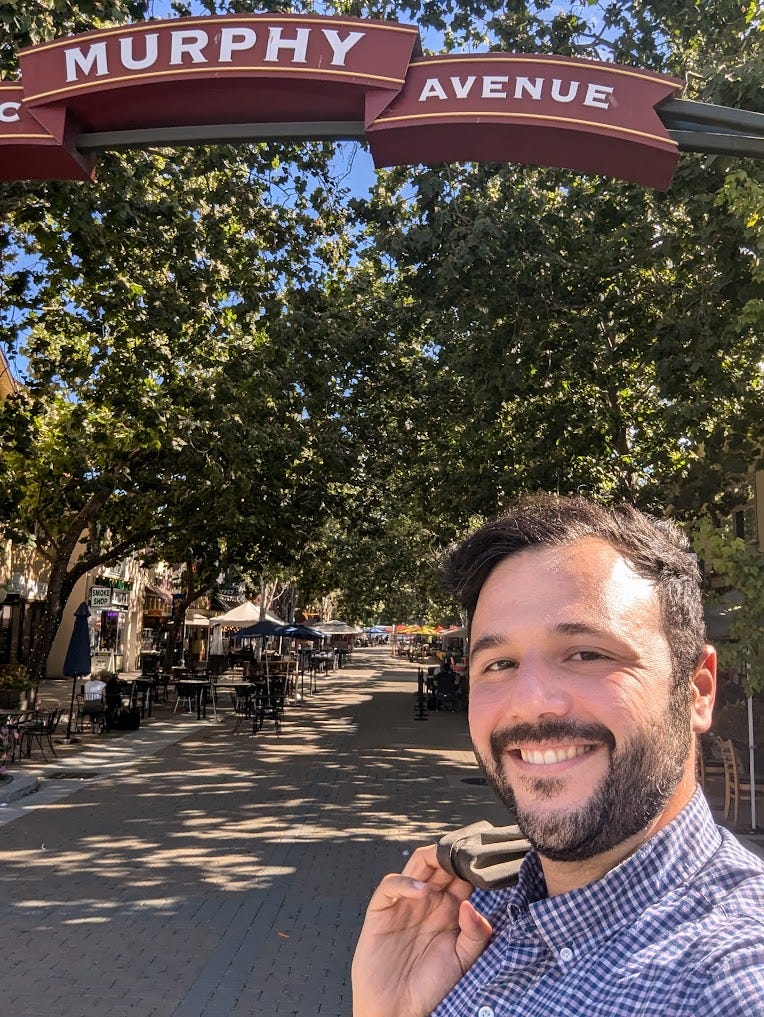Radical incrementalism for bike, transit, and street safety advocates
And pointed exploration as a way of finding meaningful agreement.
Finding disagreements with others is generally pretty easy. It is especially easy to find disconnections with others when it comes to bike, transit, and street safety issues. Every bike lane or bus route has countless decisions baked into them and each one of those decisions is a point of potential contention. For example, we could both want a new bus route but disagree on where the bus should stop specifically. We might even disagree on how to pay for that expanded bus service. When you are focused on all that disagreement, it is easy to feel alone in wanting the specific thing you want and to feel that winning it is impossible. While you might only have a few people with you in wanting that specific thing right now, you can shift things. You can win changes that make your bigger dream possible and more appealing. Brick by brick you can build your way to that radical change.

A key step is finding the place of agreement. When you’re unable to reach a political agreement with someone, particularly on a transportation-related issue, take a step back from your specific idea. Zoom out a level or two and check to see if you have agreement there. Maybe you two disagree on whether or not transit should be fare-free. Do you both agree that transit should be affordable to riders? Or that transit agencies shouldn’t have to rely on fare to run their service? Or that transit should be accessible and safe for all?
The more you zoom out, and change the approach, the more agreement you can find. If you zoom out enough, you can find ideas that are nearly universally popular. Almost everyone is in favor of good things and is against bad things. The disagreement comes from when we zoom in and get specific (e.g. we might disagree on what is a “good” thing).
While one path towards being agreeable is to be bland and nebulous, but when you’re bland the agreement you find isn’t particularly pointed. We can almost all agree that good things are good – but so what. We can’t do much of anything with bland shapeless agreement.
It is far more productive to actively search for pointed, substantive agreement. That requires being specific in what you are looking for and using exploratory questions to do a bit of poking around in your search. Poking, not cutting. The goal isn’t to back someone into a corner or score points against them; it’s to find an actual place of connection from which you can collaborate. So, if you want to push for fare free transit and your potential ally isn’t into it, your exploratory questions should be more in line with stuff like “what are some ways you’d like to see transit be made more accessible?” or “how would you like to see agencies funded?” And not cutting (or overly blunt) questions like “why don’t you care about poor people?”
Coming up with productive exploratory questions also means knowing why you, yourself, are actually interested in the idea in the first place. What about it fits into how you’d like the world to be and how you understand the world to work. If an idea was a 3-dimensional object, this would be akin to considering its different attributes: size, shape, weight, color, texture, etc. When you have that knowledge, it’s easier to know what you are looking for in terms of potential points of agreement with the other person. So, if you love the idea of fare free transit and your potential ally doesn’t, find agreement by breaking down the attributes of fare free transit that you do like and asking what the other person thinks of them. Or, to put it in the 3-D object context, it’s being able to say “hey, I like basketballs because they are orange, have stripes, bounce, and have little bumps. I hear you don’t like basketballs. How do you feel about balls that bounce? Or orange objects with black stripes?”
There are so many facets of transportation issues on policy, budgets, infrastructure, and culture that you can almost always find a point to collaborate on with someone else. While that might not be the full thing you are looking for, you are able to push on multiple fronts at once and you can always go for another round. So maybe you can’t win a fare free transit policy this year – can you win free transfers within the system? A study of fare free transit? A 1-day pilot? Some technical change that makes for smoother boarding processes? More funding for transit service as a whole? In transportation, winning the incremental change you can build consensus around is both a net plus in its own right and helps make that bigger change more possible. Fight for both the radical change and the incremental change.
And whether you win or lose, your campaign will have built something you didn’t have before – a policy change, a network, some expertise or maybe a reputation. Whatever it is, it’s a tool you can use in your next effort. To paraphrase the author Ernest Hemingway, keep organizing and you will win two ways, gradually and then suddenly.
Need help winning transportation changes in your community? I’m here to help! Whether you want a 1-on-1 training session or a group workshop, let’s talk. Email me at Carter@carterlavin.com to set something up. Here’s a bit about what training sessions are like
Donate to help get more bike, pedestrian and transit activists trained across the country!
Interested in sponsoring the training of an activist working on an issue you’re passionate about? Let’s chat. Carter@carterlavin.com


